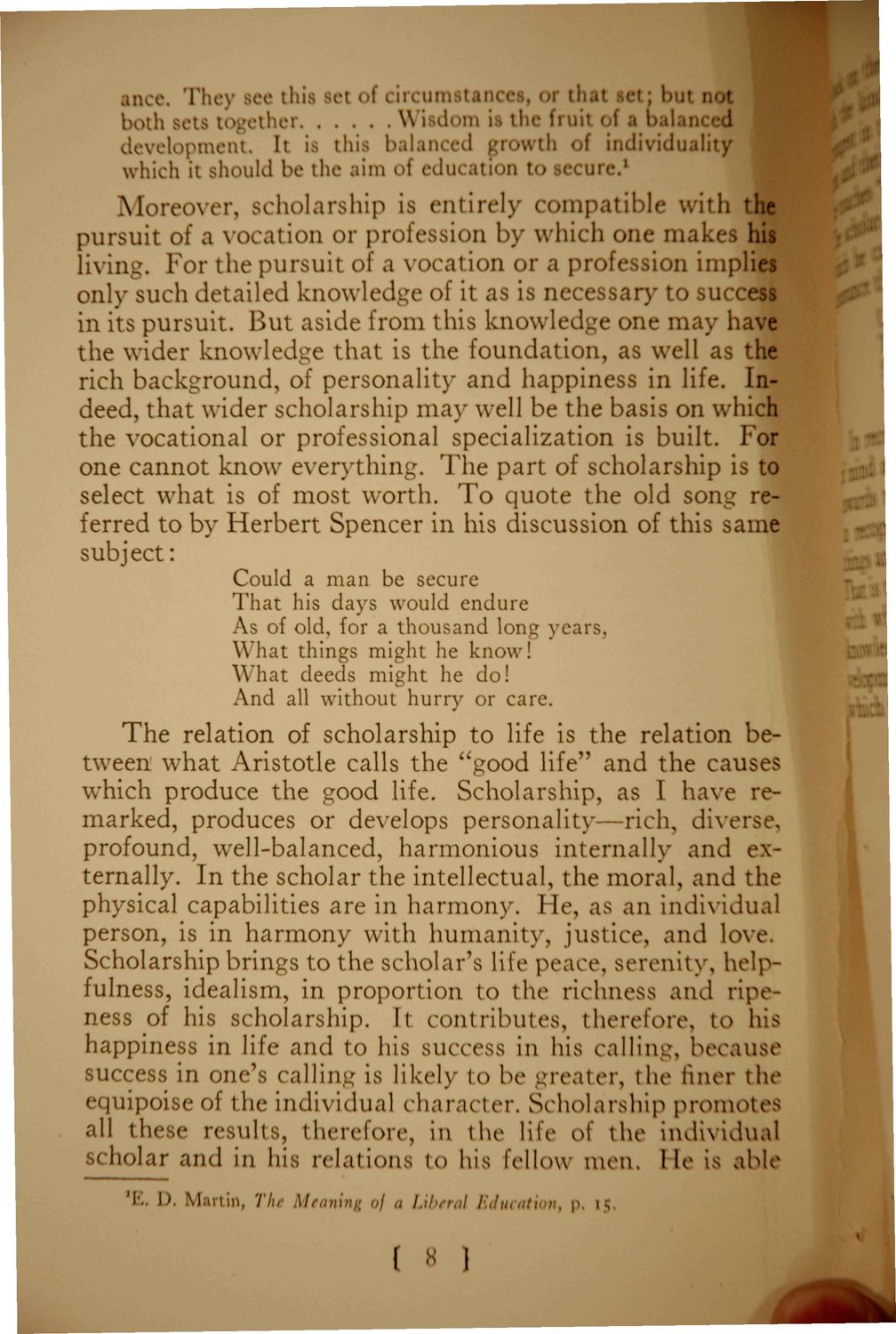| |
| |
Caption: Convocation - 1927
This is a reduced-resolution page image for fast online browsing.

EXTRACTED TEXT FROM PAGE:
aiu . 11 both sots ; this sot il r un fain thai W isd I 18 the fruit I I 1 t d dt\ >pmen It is this balan I growth of individ lucatl n to secure which it sh uld be the aim of Moreover, scholarship is entirely compatible with the pursuit of a vocation oi profession by which on makes his living. For the pursuit o\ a vocation or a pro! ion implies only such detailed knowledge of it as is necessary to success in its pursuit. But aside from this knowledge one m have the wider knowledge that is the foundation, as well as the rich background, of personality and happiness in life. Indeed, that wider scholarship ma}' well be the basis on which the vocational or professional specialization is built. For one cannot know even-thing. The part of scholarship is to select what is of most worth. T o quote the old son.: referred to by Herbert Spencer in his discussion of this same subject: Could a man be secure That his clays would endure As of old, for a thousand long years, What things might he know! What deeds might he do! And all without hurry or care. The relation of scholarship to life is the relation between what Aristotle calls the "good life" and the causes which produce the good life. Scholarship, as I have remarked, produces or develops personality—rich, diverse, profound, well-balanced, harmonious internally and externally. In the scholar the intellectual, the moral, and tin physical capabilities are in harmony. He, as an individual person, is in harmony with humanity, justice, and love, Scholarship brings to the scholar's life pea( e, serenity, helpfulness, idealism, in proportion to the richness and ripe ness of his scholarship. It contributes, therefore, to his happiness in life and to his success in his calling, because success in one's calling is likely to be greater, the finer the equipoise of t he individual chara< ter. Scholarship promotes all these re,ults, therefore, in the life of the individual S c h o l a r a n d in his r e l a t i o n s t o his fellow m e n , "E, D Martin, Th, Weaning of <i Lib // Edu r i$ l i e is a b h ( i
| |